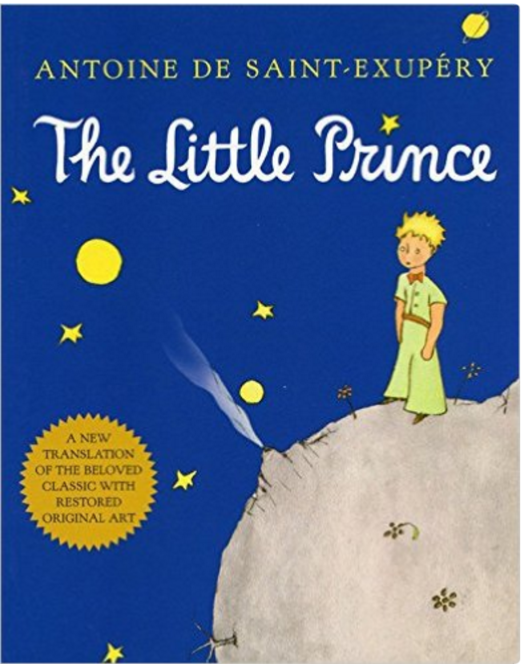Why Polyglots Also Use Stories for Language Learning
 On the weekend of July 23 and 24, 2016, we attended the first North American Polyglot Symposium (NAPS) in Montreal, Canada. (You can find the YouTube clips of most of the presentations, interviews etc. with this NAPS link, and many thanks to Joey Perugino, Tetsu Yung and all the others for organizing the event.)
On the weekend of July 23 and 24, 2016, we attended the first North American Polyglot Symposium (NAPS) in Montreal, Canada. (You can find the YouTube clips of most of the presentations, interviews etc. with this NAPS link, and many thanks to Joey Perugino, Tetsu Yung and all the others for organizing the event.)
There were some familiar faces from last fall's international Polyglot Conference 2015 in New York City, but also many new participants.
Among many others, we met Steve Kaufmann from LingQ and Lilia Mouma from Mango Languages. Both are excellent sites to learn and practice many different languages.
What are “Polyglots”?
Merriam-Webster's simple definition of a “Polyglot” is someone who "knows or uses several languages."
 There were certainly many multilingual speakers at the Montreal event. But the program also appealed to those just starting out with a second language.
There were certainly many multilingual speakers at the Montreal event. But the program also appealed to those just starting out with a second language.
One common misconception about polyglots - and we humbly count ourselves among them - is that we can speak all our languages fluently or equally well.
The fact is that we don't. Some polyglots may have grown up bilingual or trilingual. But in the languages we have acquired as adults, we often have a non-native accent and make mistakes that native speakers can easily detect.
It was great to meet and talk with many of the well-known polyglots, language bloggers, and linguists who attended.
If there was one theme that came through many of the presentations and talks, it was this: There is no magic pill, no “one” learning system or method that works for everybody and all the time.
Nobody can learn a language FOR you. You have to find the way that works best for you. Often that means some trial and error. You have to keep adjusting your method to the language(s) you want to learn, the goal you want to achieve, or the time you can commit.
Motivation
 One of the speakers commented - was it Jimmy Mello? - that polyglots are not “normal” language learners. We often don't learn another language because we HAVE to, but because we WANT to. True!
One of the speakers commented - was it Jimmy Mello? - that polyglots are not “normal” language learners. We often don't learn another language because we HAVE to, but because we WANT to. True!
Our motivation is fueled by a genuine interest in how a language works, its history, its connection with other languages, etc. Our wish to converse with native speakers in their language is also a huge motivator. To be able to do so gives you a real feeling of happiness.
Nevertheless, we also know that without frequent exposure to the target language in listening, reading, and speaking, our skills will not develop. They may even go into hiding.
Polyglots know that in order to learn a language, you have to put in the work. Yes, some may be more gifted in hearing and producing the sounds, or memorizing the words of a new language. But without practicing your skills often, consistent progress will be slow.
We heard from four young English speakers (14-17 years old) how they got interested in languages. They talked about learning multiple languages as different as Romanian, Turkish, Arabic, Thai, and Chinese. They described how much fun it was to be multilingual. They also shared their struggles with anxiety, fitting in with others, finding what works for them. Their stories were inspiring and motivating.
Why Stories from the Start?
 Many language courses - be they books, CDs, online programs, or apps - are structured around learning particular vocabulary topics: “survival words & phrases,” such as greetings, numbers, directions, shopping, time, days, months; or “categories,” such as colors, food items, parts of the body, animals, professions, objects found in the home, etc.
Many language courses - be they books, CDs, online programs, or apps - are structured around learning particular vocabulary topics: “survival words & phrases,” such as greetings, numbers, directions, shopping, time, days, months; or “categories,” such as colors, food items, parts of the body, animals, professions, objects found in the home, etc.
Clearly, these words and phrases are important to learn and know. However, if they are just introduced as a list and without context, they are difficult to retain. Besides, if you just learn a list, you won't know how to use them in a conversation.
That's why GamesforLanguage.com has chosen a “Story-Approach”: Each new word is introduced as part of an ongoing story – a young man traveling to the country of the foreign language to be learned: Germany, France, Italy, Spain, and the U.S. (this last one, English for speakers of Spanish).
Will the young traveler use all the vocabulary from the various topics mentioned above? Probably not.
But the 700 words that make up the phrases and sentences in each GamesforLanguage course will not only be more useful, but also easier to remember and apply. And that is what's important to most learners: acquiring vocabulary that they can use in daily life.
For learners who already have some background in one of the five languages, GamesforLanguage provides a fun and effective way to “brush up” on the language they want to relearn.
Why Polyglots Learn With Stories
The conventional thinking is: Before you can start reading or listening to a story in your target language, you first have to learn the basics. That's when your effort and work starts to pay off. You can now read articles, listen to audios, or watch movies that you really enjoy.
But you may not even have to wait that long. Even polyglots have to stay motivated to continue learning and improving. Several speakers at the Montreal conference related some of their personal tips and tricks.
 For example, Jimmy Mello, who runs a language school in Brazil, LISTENS to Le Petit Prince by Antoine de Saint-Exupéry in his new target language, as soon as he begins to learn it. He already knows the story in his other languages - Portuguese, Spanish, Catalan, French, German, English, etc. By using the same story every time, he can focus on the sounds of the new language, while already knowing what many of the words mean.
For example, Jimmy Mello, who runs a language school in Brazil, LISTENS to Le Petit Prince by Antoine de Saint-Exupéry in his new target language, as soon as he begins to learn it. He already knows the story in his other languages - Portuguese, Spanish, Catalan, French, German, English, etc. By using the same story every time, he can focus on the sounds of the new language, while already knowing what many of the words mean.
The same is obviously true when READING “Le Petit Prince” or reading/listening to any other story that you may already know in a language you've acquired. Children's books make an especially good choice: The language is simple, the sentences short.
Olly Richards et al. took this idea and developed Short Stories for Beginners. These are currently available for English, German, Italian, Russian, and Spanish, with an Audible Audio edition available for some of them.
Steve Kaufmann talked about how he keeps current with some of the languages for which he does not have a conversation partner: He reads books and listens extensively to audiobooks with topics that really interest him.
Keep Learning With What's Engaging and Interesting to YOU
In the talks and discussions during the Polyglot meeting, a recurrent topic was that we all have to develop our own way of acquiring and maintaining our target language.
 At Steve Kaufmann compared the language learning experience to an inverted hockey stick: the beginning you may find your progress quite rapid and exciting as you are learning new words and phrases.Then comes the flat and nearly horizontal phase, whenprogress seems to be slow. This can even happen when you already speak your target language quite well. You may have reached a fluency plateau and need to find ways to get beyond it.
At Steve Kaufmann compared the language learning experience to an inverted hockey stick: the beginning you may find your progress quite rapid and exciting as you are learning new words and phrases.Then comes the flat and nearly horizontal phase, whenprogress seems to be slow. This can even happen when you already speak your target language quite well. You may have reached a fluency plateau and need to find ways to get beyond it.
Each one of us may have to discover our own path to traverse these plateaus. But finding interesting and engaging ways to use and practice your language - whether reading, listening, speaking, or writing – will keep you both motivated and getting better.
For some, this may be attending traditional classroom courses. Others prefer online learning, reading and listening, or watching videos and movies, and extraverts may enjoy and practice speaking much earlier than others.
The good news is that if you're a self learner who really wants to learn a language, you don't have to “moan and groan” about course homework: You can choose you own requirements and enjoy them to boot.
Bio: Ulrike & Peter Rettig are co-founders of Gamesforlanguage.com. They are lifelong language learners, growing up in several European countries before moving to Canada and the United States. You can follow them on Facebook, Twitter and Instagram, and leave any comments with contact.
